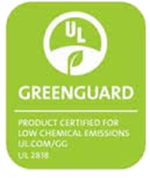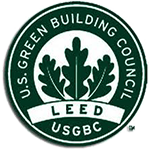Decorglass has tied up with TheSize Surfaces, one of the industry leaders in Stone Glass. Below are the details for the TheSize Surfaces.
Founded in 2009, TheSize Surfaces is a young company that draws on the experience of its directors who have more than 40 years of experience in the natural stone sector. In 2010, it launched its first board under the Neolith brand onto the market aiming to provide an innovative response to the architecture and interior design sectors. A new material with extraordinary characteristics which is appropriate for interiors and exteriors. Since then, TheSize has been consolidating itself in the world market with the Neolith product as the pioneer and leading Sintered Stone Surface in its sector.
More recently, in the year 2014, TheSize launched Granith, its new product line comprised of a collection of 12 natural granites in different finishes that is so singular and elegant, it transforms atmospheres into pure and exotic spaces with great visual force. Thus, TheSize is reinforcing its passion for natural materials by presenting two major product categories: Neolith 100% natural Sintered Stone and Granith, its select range of Natural Granites.
The Environment: An Eco-Sustainable Product

100% Natural: Made with natural clay, feldspar, silica and mineral oxides, Neolith does not emit toxic gases into the atmosphere when exposed to fire or extremely high temperatures.

100% Recyclable: Due to its natural composition, Neolith can be recycled. Up to 52% of any Neolith board is comprised of recycled raw materials.

Near-zero porosity: With a porosity of less than 0.08%, Neolith prevents absorption of liquids, meaning it is a hygienic product that is resistant to bacteria that accumulate on the surface, in seams and joints, and can cause disease and allergies. Less raw materials = less erosion: Neolith boards are made of less raw materials than other product categories because of the thinness meaning it reduces the erosion of the soil where they are found. Lower CO2 emissions: A thin board means a lighter slab. With Neolith, it's possible to transport more than double the surface quantity than it is for thicker products like marble, granite and quartz. The lower weight and thinness of the load means more efficient transport, thereby considerably reducing our CO2 emissions. Optimized energy consumption: The high resistance of Neolith to extremely high and low temperatures means it is ideal for ventilated façades. The thermal insulation and ventilation between a Neolith façade and the very building considerably optimizes the building's energy consumption (up to 40%).
The Environment: Certificates

Greenguard Certification (previously known as GREENGUARD Indoor Air Quality Certification): It certifies that Neolith meets the established chemical emissions limits which contributes to a healthier environment.

Greenguard Gold Certification (previously known as GREENGUARD Children & Schools Certification): It certifies that Neolith is suitable for use in places like schools and medical centers.

EC (European Commission) Certification: It ensures Neolith meets the European health and safety environmental protection requirements.

EC (European Commission) Certification: It ensures Neolith meets the European health and safety environmental protection requirements.

A member of the U.S. Green Building Council (USGBC): The USGBC, a council which is supervised by LEED, gathers defenders of sustainable policies and practices. 10-year Warranty: Neolith is a high quality product manufactured under environmentally-friendly conditions and with manufacturing techniques that foster the reliability and prestige of the worktops produced. Neolith offers a 10-year warranty on its worktops.
